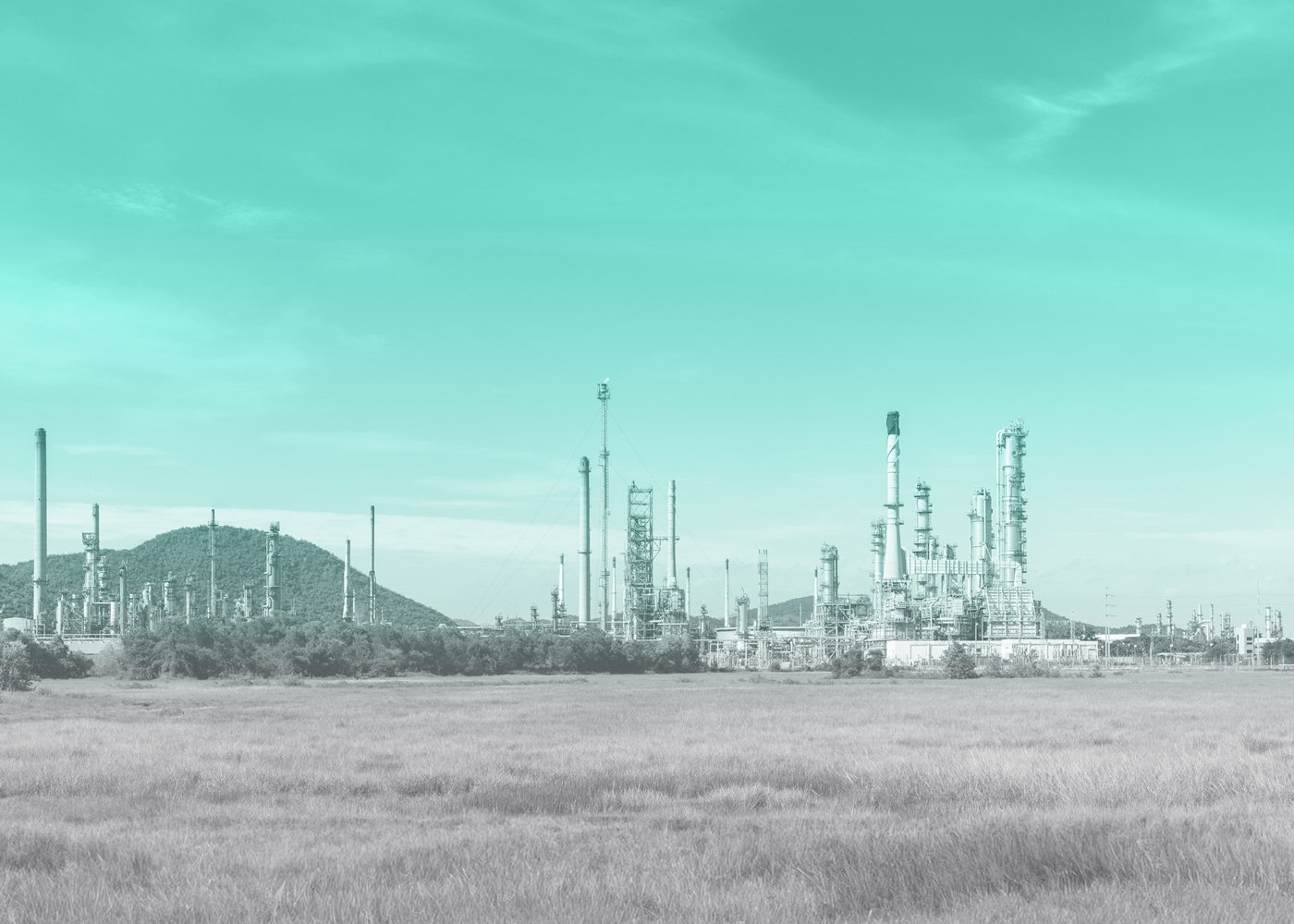Powering a Sustainable Future with Immediate and Effective Decarbonization Strategies

Decarbonization, nonetheless, remains an industry-wide challenge. More significant near-term emissions reductions and longer-term net zero commitments are needed to close the gap between current global GHG emissions and the path to meeting the Paris Agreement's 1.5 o C scenario. Many businesses are focused on crafting an ambitious environmental sustainability program to reach their goals by 2050. This focus, however, risks overlooking the immediate action needed to meet longer-term objectives—and the steep learning curve associated with those actions.
We commissioned independent research firm Verdantix to conduct a study of executives across the construction materials sector in North America to uncover the trends surrounding decarbonization. With momentum building around both short- and long-term strategies to enable a sustainable, decarbonized future, here’s what you need to know as you plan for tomorrow.
- Companies are facing unprecedented pressure to decarbonize their operations: CO2 emissions from building operations and the materials used in the construction sector together account for around 37% of global energy and process-related emissions, according to research from the UN Environment Programme. Driven by the Paris Agreement, which was adopted by 196 parties at the United Nations Climate Change Conference in Paris in 2015, momentum is mounting to implement decarbonization strategies and manage climate risks.
External pressure to contribute to global decarbonization efforts is coming from several fronts, including:
- The supply chain: Six in 10 (62%) organizations we surveyed cite supply chain pressure as either the “most significant” or a “very significant” driver of decarbonization. Developers now increasingly include environmental clauses in contracts for building materials, pressuring building materials manufacturers to continuously innovate to incorporate recycled materials and develop low-carbon production methods.
- Investors: 60% of organizations cite investor pressure as either the “most significant” or a “very significant” driver of decarbonization programs. Institutional investors are actively urging firms to commit to greenhouse gas (GHG) reduction targets and requiring credible climate transition plans. There’s an increased awareness that shareholders can exert their influence through proxy votes against a company’s directors and by submitting shareholder resolutions that address decarbonization. Private equity firms, for their part, are increasingly incorporating ESG factors into their investment strategies and setting decarbonization goals for their portfolio businesses.
- Regulators: Regulatory developments, including Environmental Protection Agency (EPA) regulations and the U.S. Securities and Exchange Commission’s (SEC) proposed climate disclosure rule, are shaping decarbonization strategies and reporting requirements. Proposed measures like California’s Climate Accountability Package and the Task Force on Climate-related Financial Disclosures (TCFD) framework in Canada add further complexity.
- Companies are setting short-term targets but often struggle to translate decarbonization strategies into action: According to our survey, nearly 7 in 10 (68%) firms have given themselves a decade or less to reach their short-term decarbonization targets, but these firms have a steep learning curve ahead. Furthermore, 83% of firms surveyed with more than $5 billion in revenue have shared their targets externally, adding to the sense of urgency and forcing accountability.
- Organizations are looking to outside partners to help them meet their decarbonization goals: Climate science and industrial decarbonization strategies are extremely complex, and overcoming challenges in these areas requires exceptional technical acumen. Complex supply chains and carbon-intensive processes add to the challenge. Because of this, many organizations in our survey are looking to outside partners for help meeting their sustainability objectives.
Over the next two years, the firms we surveyed expect the highest increases in consulting spend in the areas of corporate sustainability reporting and energy auditing. And, with firms coming under increased regulatory and reputational pressure to increase disclosure, companies in the construction materials sector frequently cite GHG disclosure framework expertise as the most important factor when selecting a consulting partner to further their climate strategy.
Powering a more sustainable tomorrow starts today. Setting the right decarbonization strategy for your organization, however—one that includes the immediate actions needed to achieve your goals—can be extremely complex. It requires deep industry expertise and technical knowledge as well as an understanding of reporting requirements and frameworks.
By bringing seasoned environmental consultants into the process, you can access the technical acumen and sector-specific expertise needed to plan and implement strategies for the here and now (in the immediate, short term—not 30 years from now). You need a strategic partner that knows your business and can meet you wherever you are on your decarbonization journey. Winning companies need a trusted guide to help navigate the complex regulatory terrain.
To learn more about how Trinity Consultants helps companies achieve immediate and effective decarbonization strategies and access the full research findings, as well as, other blogs on Sustainability and Decarbonization, visit our sustainability page.
Related
Sponsored Content
About the Author

Wendy Merz
Trinity Consultants
Wendy Merz is Trinity’s Director of Sustainability Services and a Principal Consultant with more than 23 years of environmental consulting experience. In her current role, she coordinates Trinity’s service offerings and works with our local Environmental Consulting offices on projects related to environmental sustainability. She is also experienced in environmental regulatory compliance strategy development and air quality permitting across multiple industry sectors, which she leverages to support industrial clients in addressing today’s challenges associated with the transition to a low-carbon economy. This support includes corporate GHG inventories (Scope 1, 2, and 3), product life cycle assessments (LCAs) and environmental product declarations (EPDs), GHG reduction strategies, and target-setting.
She also supports clients with various corporate environmental sustainability initiatives, including program development, environmental KPI identification, and tracking. She is an experienced project manager of large projects with geographically diverse team members and client sites and is an experienced presenter and instructor on sustainability topics and environmental regulatory requirements.
Ms. Merz has supported clients in variety of industries including natural gas production, transmission and distribution, power generation, petroleum refining, cement manufacturing, lime manufacturing, steel manufacturing, secondary aluminum manufacturing, synthetic fiber manufacturing, food processing, asphalt manufacturing, and transportation services. She also has extensive experience in the regulatory requirements for stationary engines enrolled in Demand Response Programs.
Ms. Merz graduated from Lehigh University with a Bachelor of Science degree in Chemical Engineering and from University of Cincinnati with a Master of Science degree in Environmental Engineering. Prior to her consulting career, Ms. Merz worked in the oil industry for six years and taught high school chemistry for five years. Ms. Merz opened Trinity’s Philadelphia Office in 2012 and managed the office for seven years.
She also supports clients with various corporate environmental sustainability initiatives, including program development, environmental KPI identification, and tracking. She is an experienced project manager of large projects with geographically diverse team members and client sites and is an experienced presenter and instructor on sustainability topics and environmental regulatory requirements.
Ms. Merz has supported clients in variety of industries including natural gas production, transmission and distribution, power generation, petroleum refining, cement manufacturing, lime manufacturing, steel manufacturing, secondary aluminum manufacturing, synthetic fiber manufacturing, food processing, asphalt manufacturing, and transportation services. She also has extensive experience in the regulatory requirements for stationary engines enrolled in Demand Response Programs.
Ms. Merz graduated from Lehigh University with a Bachelor of Science degree in Chemical Engineering and from University of Cincinnati with a Master of Science degree in Environmental Engineering. Prior to her consulting career, Ms. Merz worked in the oil industry for six years and taught high school chemistry for five years. Ms. Merz opened Trinity’s Philadelphia Office in 2012 and managed the office for seven years.

